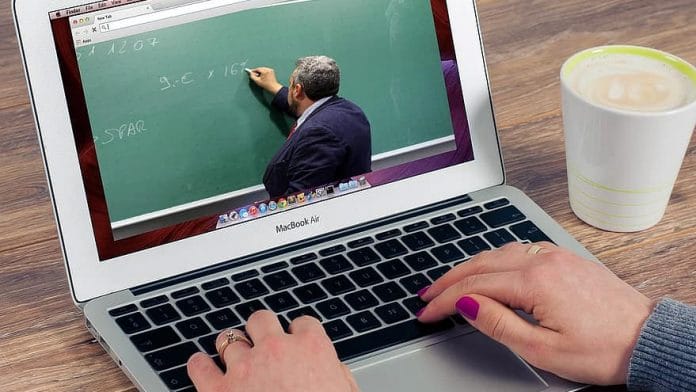The newspapers on my bedside table carry headlines applauding the bravery of a teenage girl who fought thieves trying to steal her mobile phone because her parents couldn’t afford to buy another one for her online classes.
Beside me, my seven-year-old brother struggles to connect to audio on yet another class on Zoom.
I face neither of these problems. I don’t suffer under the crippling yoke of poverty that has rendered education inaccessible to so many during this pandemic, nor do I suffer from technological ineptitude. I, like most of my classmates, have settled into an almost comfortable routine of attending lectures online, just like we would have in school.
For the privileged urban teenager, online education isn’t difficult to access. Every morning, we simply switch on our laptops, connect to the Wi-Fi and log in to a lecture. And then we sit in front of that screen for hours on end, the virtual blackboard replacing the chalk and duster.
Instead of the charts that adorned the walls of the classroom, we share PowerPoint presentations. Sending WhatsApp messages while keeping the phone out of the teacher’s sight is the new sharing chits in class. And yet, something’s missing.
For all the advances of technology, the screen in front of us lacks the vitality of the classroom. And so, the question about how education is impacted by this pandemic, leads, in turn, to a much deeper one — what exactly is education?
Education is about social interaction
Is it the mere transfer of knowledge from teacher to student? The mindless recitation of facts and solving of sums? A focus on the minutiae of the textbook anticipating exam questions?
For a child with both access and proficiency when it comes to technology, education, if defined by these narrow parameters, has remained unaffected by the pandemic.
It may have, in fact, got easier. We take screenshots instead of making notes, screen record lectures we are too bored to attend, and claim network issues when we don’t know an answer.
But education is also supposed to be about social interaction. It is not just the memorising of textbooks but also about playing a team sport during break or sharing a meal in the canteen. As teenagers grow, schools provide an outlet where they can connect with and relate to those their own age. We thrive on the relationships we form there.
Education means not just what you gain sitting inside a classroom but the life experiences that surround you on campus. Away from the sheltered environment of the home, schools provide children and teenagers an opportunity to make mistakes and play pranks, get in and out of trouble, and learn how to stand up for yourself without a parent there to protect you.
In the early years of one’s school life, when teachers said the school was a second home, they weren’t talking about the studies, at all. They were talking about the fact that schools play almost as big a role in the growth of a child as the family does.
The interactions we have with both teachers and people our own age help us understand different perspectives and learn from them. Schools and colleges are supposed to mould our personality. They have, for generations, been institutions whose primary job is to create emotionally developed and socially responsible individuals — it takes a village.
But the pandemic has put a stop to that. We spend hours trying to absorb facts from a faceless voice watching slideshows that barely hold our interest, cut off from the animated surroundings of the physical classroom. Online education may be the best choice we have right now. Perhaps, it may even be the most efficient option regardless of the pandemic.
But it is also the most lifeless.
 Anoushka Kothari is a student of Mithibai College of Arts, Mumbai
Anoushka Kothari is a student of Mithibai College of Arts, Mumbai






